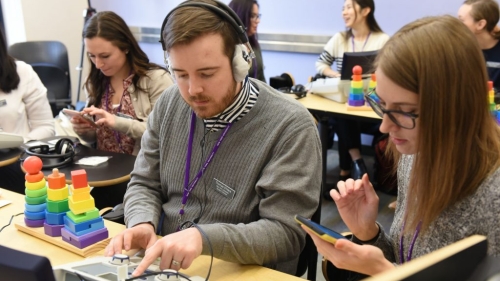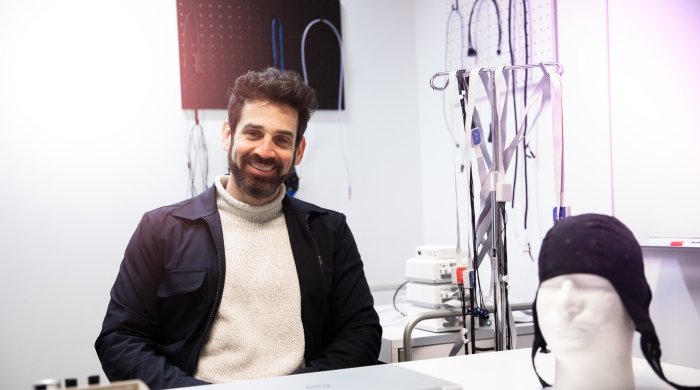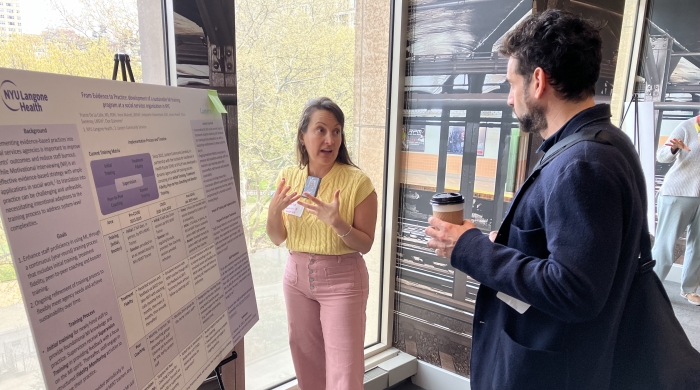
iStock/Michael Workman
Researchers analyzed Reddit posts from stutterers sharing experiences with substances such as magic mushrooms and LSD.
Synesthesia, hallucinations, euphoria. The documented effects of classic psychedelic substances such as psilocybin (magic mushrooms) or lysergic acid diethylamide (LSD) are vast. With their usage common and their effects profound, a team of speech and pyschology researchers explored the impact of psychedelics on people who stutter, finding evidence that users see some benefits.
“Given the positive effects of psychedelics on conditions like anxiety and PTSD, which share symptoms with stuttering, we think that investigating the potential impact of psychedelics on stuttering can be a fruitful area of research,” says lead author Eric S. Jackson, associate professor of communicative sciences and disorders at NYU Steinhardt School of Culture, Education, and Human Development.
Jackson and his co-authors’ findings are published in Journal of Fluency Disorders.
Using the social forum network Reddit, the researchers analyzed 114 posts between 2012 and 2022 from 104 distinct users with keywords related to stuttering and speech as well as generic and specific names for psychedelics. They analyzed use of psilocybin and LSD, and did not include accounts of methylenedioxymethamphetamine (commonly known as ecstasy) or N-dimethyltryptamine (DMT).

Given the positive effects of psychedelics on conditions like anxiety and PTSD, which share symptoms with stuttering, we think that investigating the potential impact of psychedelics on stuttering can be a fruitful area of research.
The researchers designated Reddit posts under the broad themes of positive, negative, and neutral effect. They then established subcategories based on the effects of the substance:
- Behavior (habits)
- Emotions (altered state, feelings)
- Cognition (mindfulness, cognitive flexibility)
- Beliefs (metaphysical beliefs, suggestibility)
- Social connection (connectedness, empathy)
A majority of users (74.0%) reported positive overall effects, particularly related to behavioral and emotional change (e.g., reduced stuttering and anxiety). Negative (9.6%), mixed – positive and negative – (4.8%), and neutral overall experiences (11.6%) were also reported. Half of the posters indicated a reduction in stuttering. One such forum poster shared that “psilocybin has been a key factor in what not only has increased my fluency as a speaker, but just overall who I am as a person [and] the lens that I see life through.”
While the authors note that they cannot confirm reported benefits given the limitations of study, they say the results offer preliminary evidence that some stutterers report reduced stuttering and associated symptoms under the influence of psychedelics.
“The results support the possibility that psychedelics may impact stuttering, but caution must be applied in their interpretation given the entirely uncontrolled research setting and potential adverse health effects of psychedelics as reported elsewhere,” says Jackson. “While these results do not encourage the use of psychedelics by stutterers, they suggest that future work could examine the impact of psychedelics on stuttering in randomized controlled clinical trials.”
Press Contact
646-469-8496
Related Articles
How Our Brains' Beta Waves Predict Stuttering
Researchers found brain waves related to stopping body movements can predict stuttering.
The Center of Health and Rehabilitation Research 2024 Spring Showcase Highlights Faculty and Student Research
Attendees saw presentations from across the rehabilitation fields in multiple academic departments and heard from CoHRR and Seed Award grantees.
McAllister Awarded Two NIH Grants Totalling $3.5M
Funding will support biofeedback technology research for different speech-language pathology applications.
Related Department

Communicative Sciences and Disorders
665 Broadway, 9th floor
New York, NY 10012
Phone: 212-998-5230



